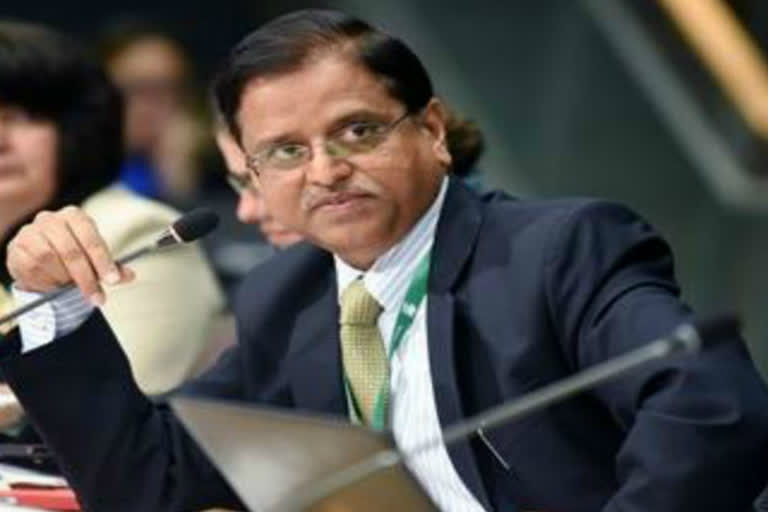New Delhi: The Bimal Jalan panel, set up to decide the appropriate capital reserves for the RBI, will hold its next meeting on June 13, Finance Secretary Subhash Chandra Garg said here.
Garg, who is a member of the panel headed by the former RBI governor, said the report has not been finalised yet.
"They are still discussing. They have three more months from their earlier date. The discussion is still on. The next meeting will be on June 13," he said on the sidelines of the Assocham event here.
The six-member Jalan panel was appointed on December 26, 2018, to review the Economic Capital Framework for the RBI.
The panel has got an extension beyond the three-month term.
On the cryptocurrency regulation, Garg said the report is ready and will be submitted to the finance minister soon.
"We will submit it to the finance minister (soon). Of course, once the approval is done, it will be made public," he said.
A committee, headed by Garg, has been tasked to study all aspects of cryptocurrencies and crypto-assets, including Bitcoin.
Read more:India's green vision to see full duty exemption on liquefied natural gas
Earlier during the day, he said India has made a case for putting on tax on profits of a company based on the consumption of goods and not its physical presence.
This move could benefit India, which is the world's second-most populous country.
The government has made several representations at the forum of G20 countries, but the idea has been opposed by many countries.
Garg said buyers or users of the goods sold actually contribute a lot in earning profit for a company. So, taxation should be based on significant consumption base, irrespective of the way the goods and services are delivered, he said.
He said, "A multinational company which might be earning revenues from India without actually having a physical presence here. That means if the taxation isn't consumption-based, the company doesn't need to pay anything on the money it makes in India."
Citing example, he said, "Netflix is beaming so much of entertainment content into India, it may not have even a single small office here.
With the introduction of the goods and services tax, India has moved towards destination-based taxation, Garg said.
He wondered why should not profits be taxed based on the principle of destination.
Garg said India would take up this agenda further to bring balance in the global taxation system.
In 2016, India had introduced equalisation levy to tax online and digital advertisements to indirectly tax companies such as Google and Facebook.



